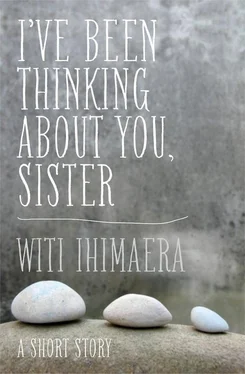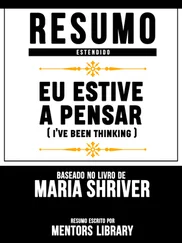However, my relief was shortlived when Mum failed to telephone in from Barcelona. And then I received a call from Charles de Gaulle International Airport in Paris, from Chad’s friend, who introduced himself as Addison. ‘Oh, hi ya,’ he drawled. ‘Say, I’ve been waiting for your folks at customs but we must have missed each other. Should I call the police?’
‘No,’ I sighed. ‘I am sure they are okay.’ Yeah, right. My mind was filled with visions of them being kidnapped by French thugs, robbed of their money and their bodies thrown into the River Seine.
Two hours later, Dad phoned. ‘Your mother is getting all dressed up to take me out on the town,’ he said.
‘Why didn’t you phone me from Barcelona?’ I screamed. ‘And why didn’t you meet up with Addison at the airport?’
‘Were we supposed to telephone you from Barcelona?’ Dad answered. ‘And who’s Addison?’
Mum took the telephone from Dad. ‘We gave him the slip,’ she said. ‘As soon as I saw a man dressed like Rambo holding up a sign with our names on it, I took Dad off in the opposite direction. Otherwise we’d never be able to get to you-know-where.’
‘How did you find your hotel?’ I asked. Dad only had a smattering of French, learnt when he was a schoolboy in the 1920s, and I couldn’t imagine how that would enable them to negotiate the horrors of the Metro, not to mention being prey to every pickpocket, pimp and prostitute as they trundled their bags through the streets — and any thief after Dad’s white trainers.
‘Oh, you know your father,’ Mum answered. ‘Talks to anybody. On the plane he got into a conversation with three boys who were backpacking through Europe and he ended up playing cards with them. Poker, the naughty man. How many matchsticks did you win, dear? Anyhow, they offered to escort us to this place; at least this one has locks on the door. But we can’t stop, son, otherwise we’ll be late for the show. I’ll phone you when we get back.’
Two months later, I received a postcard from the three boys:
DEAR MISTER MAHANA, MY FRIENDS AND I FELL IN LOVE WITH YOUR FATHER. BUT COULD YOU TELL US, DID HE AND YOUR MOTHER REACH THEIR DESTINATION AND THEN RETURN SAFELY TO NEW ZEALAND? WE ARE ANXIOUS TO KNOW. FELIX, MARTIN AND PLACIDO.
The three boys weren’t the only ones to fall in love with Dad. When he and Mum arrived at the Folies Bergère, the maître d’ was entranced by their formality and elegance. Dad was wearing his black suit. The jacket is a perfect fit, but it doesn’t do to look too closely at his trousers, as he usually cuts the waistband to give some slack so that his stomach can fit in. Mum was wearing her blue sequined dress and lovely cape of kiwi feathers. They were seated at a table right at the front. The programme they brought home after their trip has the scrawled signatures of Lolo, Dodo, Jou-jou, Frou-frou, Clou-clou, Margot and Valencienne, so obviously Dad was a hit with the girls, too. Apparently he was so thrilled by the show that he got up at the end and did a haka.
‘I wish your father would just clap like ordinary people,’ Mum said on the telephone when she checked in with me. ‘But your father became … well … somewhat excited. You’d think he’d never seen bare breasts before.’
‘Or bare anything,’ I heard Dad grumble in the background, referring to my mother’s legendary modesty.
‘Enough of that,’ Mum reproved him. ‘Our big day tomorrow, Dad. No funny business tonight.’ Then she remembered I was still on the phone. ‘You still there, son? I better hang up now. Dad and I have to get up very early to catch the plane to Tunisia. Don’t worry about us. Love you.’
My mother was not going to leave anything to chance, particularly seeing her beloved brother who, many years ago, always kept the last waltz for her.
So kiss me again, and then let us part,
And when I grow too old to dream
Your kiss will stay in my heart —
The next morning Mum and Dad took a taxi, thank god, back to the airport to catch their first flight to Tunisia. Mum had organised with Donald that they would stay in Sfax for two days. This would give her and Dad plenty of time to visit Uncle Rangiora’s grave. They would check into their hotel, go out to the Sfax War Cemetery, spend some time with Uncle Rangiora in the cemetery and return to Sfax in the late afternoon. They would stay at the hotel that evening, possibly go back to the grave for a second visit the next day to say goodbye to Uncle Rangiora, and catch the plane back to Paris.
The flight was smooth and uneventful. Dad was in an aisle seat and Mum was squeezed between him and an extremely well groomed gentleman sitting next to the window. The man wore a dark suit and a blue tie to match the blue handkerchief in his jacket pocket. But what Mum remembered most about him was that he had the shiniest shoes that she had ever seen. They were like mirrors.
I don’t know who the man was, and Mum and Dad lost the card he gave them, but I can’t write about him without giving him a name — so let us call him Monsieur Samaritan. Dad leaned across Mum and, as usual, began to speak to the man. Dad told him he was from New Zealand, and immediately Monsieur Samaritan’s face lit up. ‘Ah! Néo-zélandais! Go the All Blacks!’ When Dad elaborated and said he and Mum were Maori, Monsieur Samaritan clapped his thighs and said, ‘Ka mate, ka mate, ka ora, ka ora! Kia ora!’
Dad and Monsieur Samaritan shook hands, Dad exchanged seats with Mum, and very soon he and Monsieur Samaritan were talking as if they were old friends. Monsieur Samaritan told them that he was an official for the Tunisian government and had been on business in Paris, renegotiating landing rights for Air France in Tunisia; the negotiations had been somewhat exhausting and he was looking forward to getting home to his wife and children. He had never been to New Zealand, but he had met some New Zealand officials in his business — and he was a rugby fan.
‘We’re on our way to the Commonwealth graveyard at Sfax,’ Dad said. He told him about Mum’s river stones and bottle of river water, and Monsieur Samaritan was affected by Mum’s simple gesture of love for her brother. He took his handkerchief out of his pocket and, dabbing at his eyes, waved to some other passengers across the aisle.
‘C’est mon frère, le libérateur de la Tunisie —’
Well, that did it. Before too long, Dad was the centre of attention, and more cards and greetings were exchanged.
* * *
In this mood of general friendliness and bonhomie, Mum and Dad landed at Sfax. They farewelled their new friends, all native Tunisians, and exited the plane. Officials saluted Monsieur Samaritan at the gate, ready to take him through VIP customs to a government limousine that would whisk him into the city.
‘Monsieur Tom,’ Monsieur Samaritan said, clicking his shiny shoes together, ‘I wish you a good visit to Sfax and a safe return to your homeland. Kia ora.’
Then he bowed to Mum — so you mustn’t think that my father was the only one to impress strangers. Mum has her own quiet dignity and inner luminosity, and intrigues in her own way. She has never regarded herself as beautiful — her face is too angular and as a young woman she was built like a man with her wide shoulders and slim hips — but where other women lose their beauty as they grow older, Mum has come into hers. I’m not sure what gives Mum this look of having eternity in her, but I have seen it in other women who have lived life and, somehow, understood its ebb and flow.
Mum rummaged in her bag for some gifts to give to him, and pulled out a bone pendant and an All Blacks T-shirt. ‘For your children,’ she said. ‘And if ever you come to New Zealand, Dad will put down a hangi for you.’
Читать дальше












